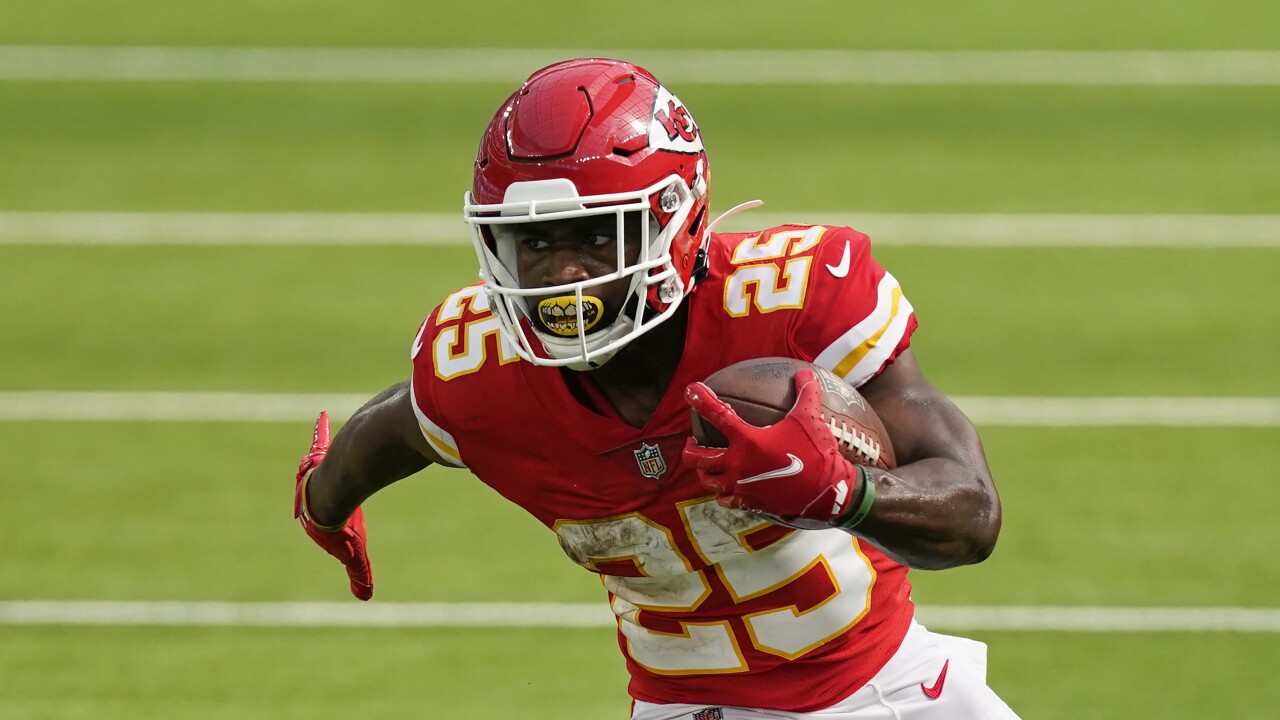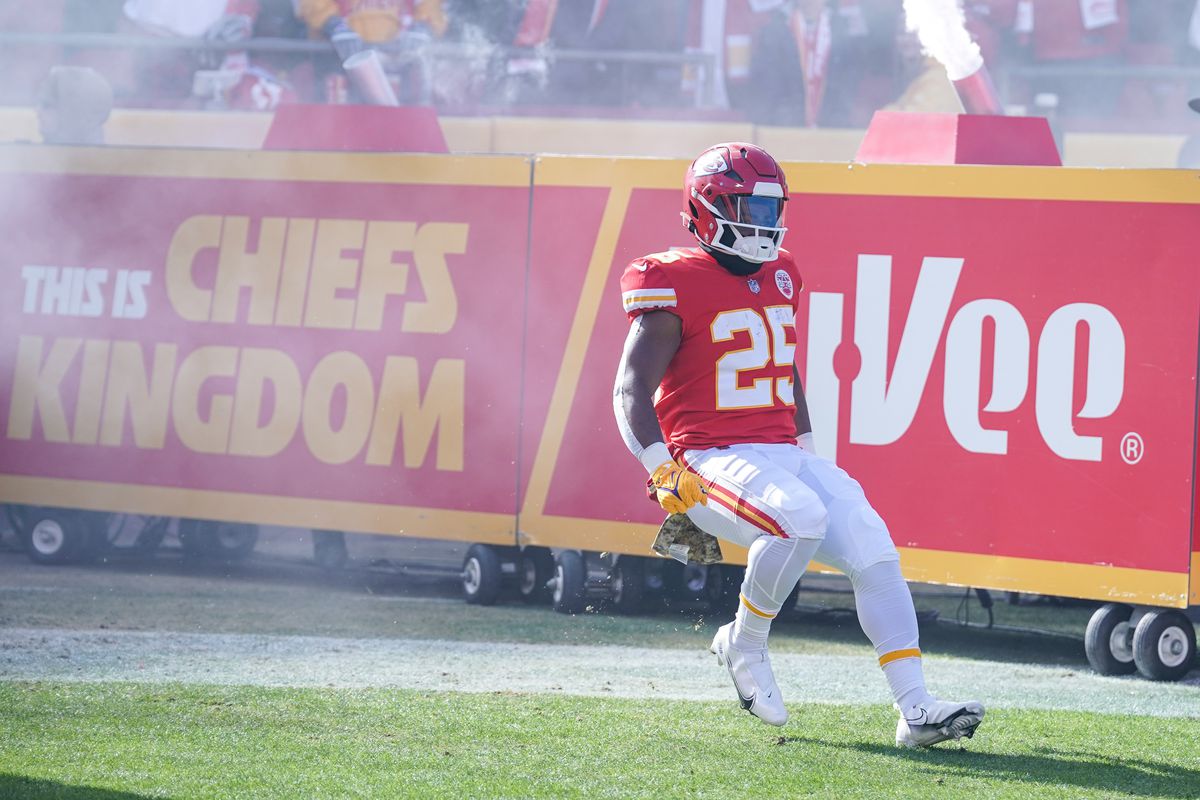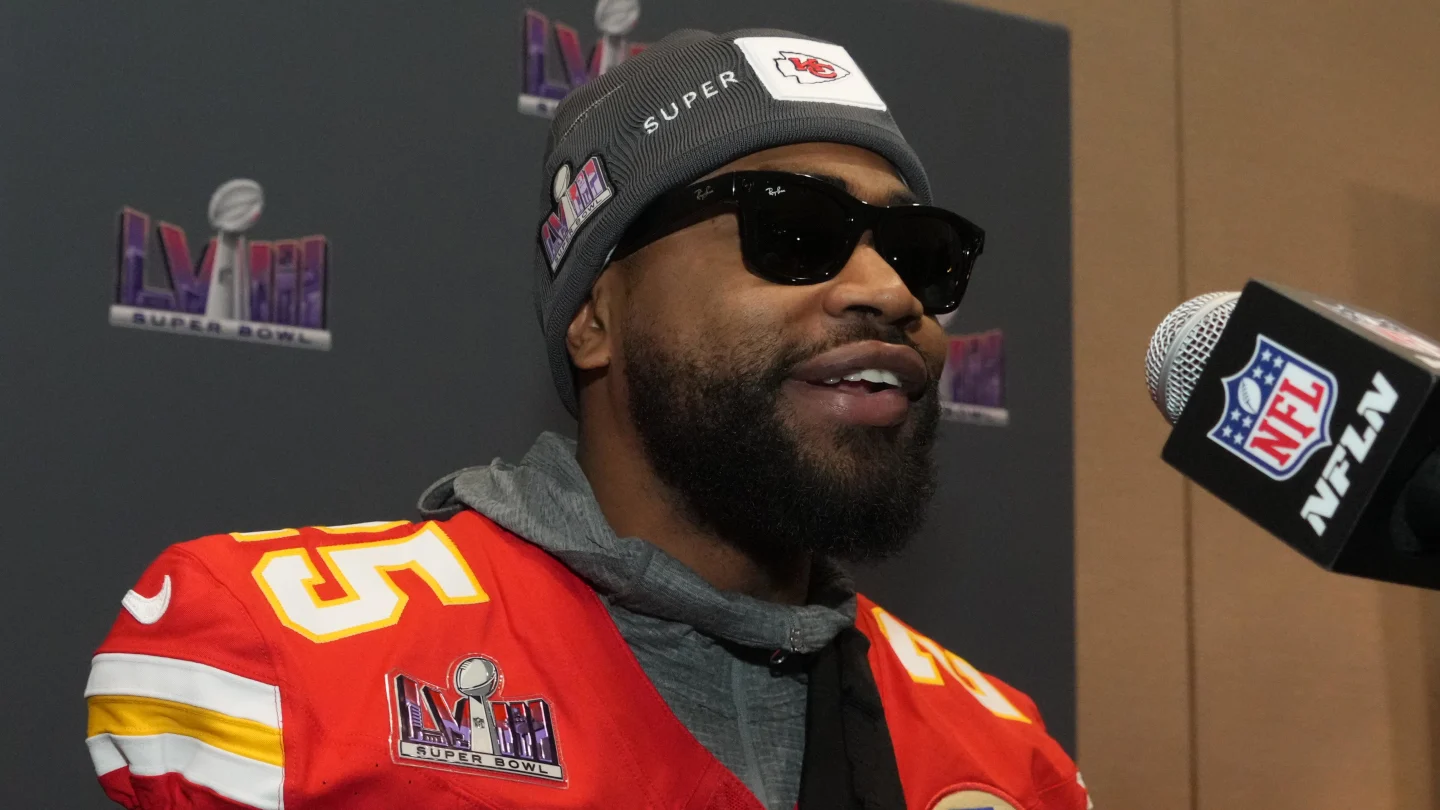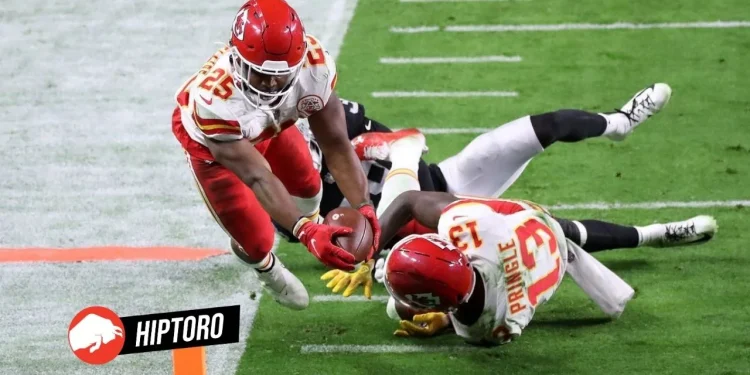The Kansas City Chiefs, a team renowned for its strategic acumen both on and off the field, recently showcased this by using a meeting with running back J.K. Dobbins as leverage in contract talks with Clyde Edwards-Helaire. This move, interpreted by former Chiefs quarterback Chase Daniel as a deliberate strategy to secure favorable contract terms, shines a light on the intricate dance of player negotiations in professional football.

Kansas City Chiefs’ Playbook
The NFL is no stranger to the cat-and-mouse games of contract negotiations, where every move is calculated to gain an advantage. The Chiefs’ recent rendezvous with J.K. Dobbins, immediately followed by the re-signing of Clyde Edwards-Helaire to a one-year deal, is a textbook example of using potential player acquisitions as leverage.
This strategic meeting wasn’t just a simple evaluation of talent; it was a signal to Edwards-Helaire and his representatives that the Chiefs were exploring all options, thereby creating a sense of urgency to agree on contract terms.
🚨🚨🚨BREAKING NEWS🚨🚨🚨#Chiefs star receiver Rashee Rice is facing a possible SUSPENSION from the #NFL or the Kansas City, per NBC.
Rice could also face civil liability and potential criminal liability due to his involvement in a 6-car crash. pic.twitter.com/qRMPYrEded
— MLFootball (@_MLFootball) April 4, 2024
Chase Daniel, who has seen the league from the unique perspective of a longtime backup quarterback, shared his insights on this maneuver. Drawing parallels to his own experiences, Daniel highlighted the underlying message the Chiefs sent by entertaining Dobbins: sign now or risk being replaced. It’s a harsh reality of the business side of football, where loyalty often takes a backseat to financial and strategic considerations.
Chase Daniel: The Clipboard King’s Insight
Chase Daniel’s career, marked by substantial earnings despite minimal playtime, embodies the peculiar success that backup quarterbacks can achieve in the NFL. Dubbed the “gold standard for clipboard kings,” Daniel’s career serves as a testament to the fact that player value in the NFL extends far beyond the field.
His reaction to the Chiefs’ move — informed by his history as leverage in negotiations — provides a unique lens through which to view the situation.

Beyond his financial success, Daniel’s transition to a media career as an NFL Network analyst in 2023 marks a new chapter for the former quarterback. His willingness to share his experiences and insights adds a layer of depth to our understanding of the dynamics at play in NFL negotiations and team strategies.
Edwards-Helaire Over JK Dobbins
The choice between Edwards-Helaire and Dobbins isn’t new for the Chiefs. In the 2020 NFL Draft, the team selected Edwards-Helaire with their last pick in the first round, a decision that came before the Baltimore Ravens picked up Dobbins. This recent negotiation tactic, therefore, isn’t just about leveraging for a better contract; it’s also a reaffirmation of the Chiefs’ belief in Edwards-Helaire’s value to their roster.

NFL’s Negotiation Chess Game
The Kansas City Chiefs’ maneuvering in the negotiation arena with Clyde Edwards-Helaire, underscored by the insights from Chase Daniel, illuminates the complex strategies NFL teams employ to assemble a competitive yet financially sustainable roster.
In this league, every player meeting, every contract negotiation, and every draft pick is a move in a grand strategy game, where the ultimate prize is not just a Super Bowl victory but sustained success and financial stability.
As teams navigate the challenging waters of player negotiations, they must balance loyalty, talent, and the harsh realities of the salary cap.
The Chiefs’ recent moves exemplify this balancing act, showcasing the multifaceted considerations that go into building a championship-caliber team. In the NFL, the game played off the field is just as intricate and compelling as the one played on it.

Source: Fansided









